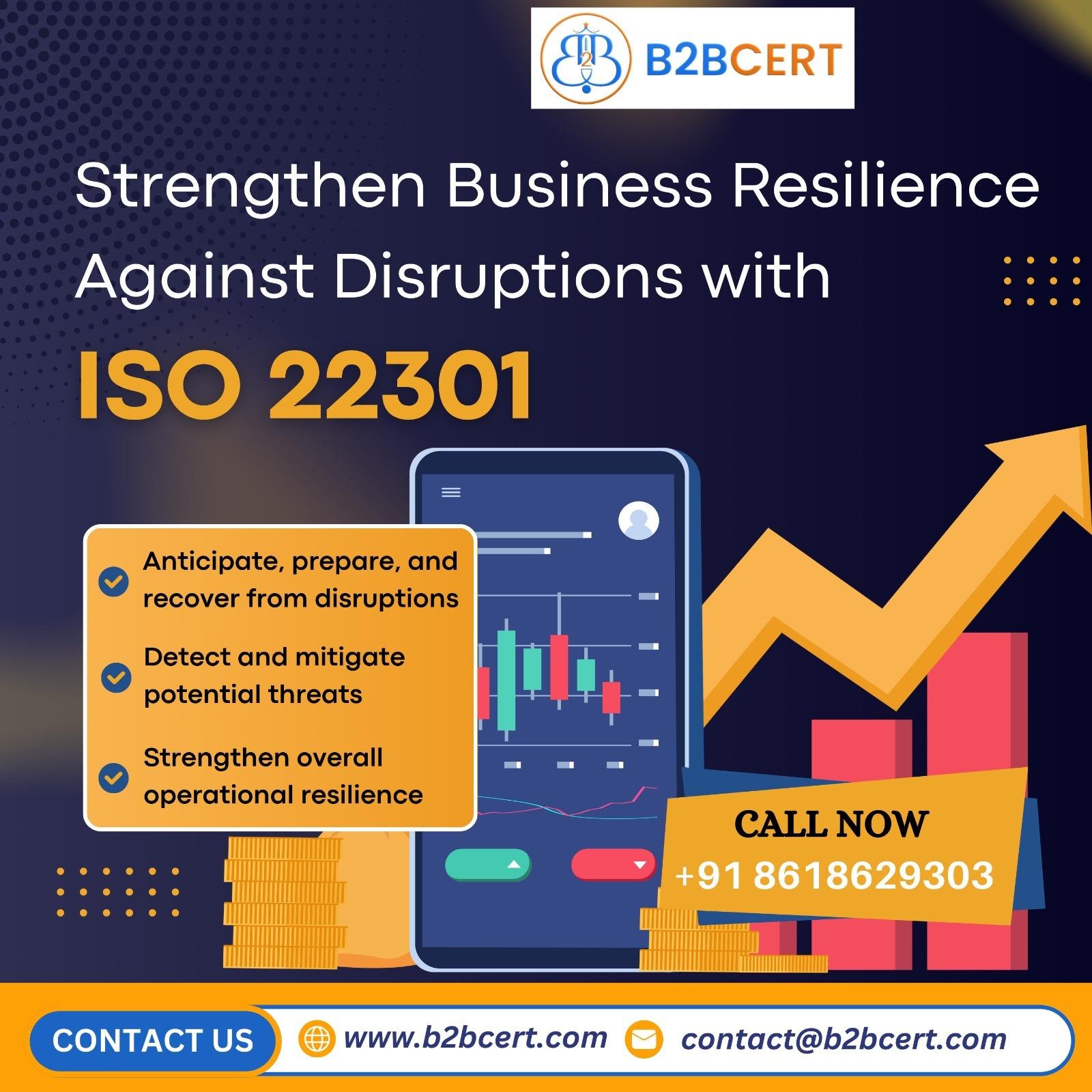In today’s unpredictable business environment, organizations face numerous challenges ranging from natural disasters to cyberattacks and global pandemics. Ensuring operational continuity during such crises has become a top priority for businesses. ISO 22301 Certification serves as a globally recognized standard for Business Continuity Management Systems (BCMS), helping organizations prepare for, respond to, and recover from disruptive incidents. For companies in the UAE, obtaining ISO 22301 Certification in Dubai strengthens resilience, builds trust, and ensures compliance with international standards.
Below are the key steps to achieving ISO 22301 Certification and how professional ISO 22301 Consultants in Dubai can streamline the process for your organization.
1. Understanding ISO 22301 and Its Benefits
ISO 22301 is the international standard that specifies requirements for a Business Continuity Management System (BCMS). It provides a structured framework to ensure business operations can continue with minimal disruption during unexpected events.
The key benefits include:
-
Improved risk management and resilience.
-
Reduced downtime and financial losses during crises.
-
Enhanced stakeholder confidence and trust.
-
Compliance with regulatory and contractual requirements.
By obtaining ISO 22301 Certification in Dubai, organizations demonstrate a strong commitment to continuity and reliability — essential qualities in a competitive business hub like the UAE.
2. Conducting a Gap Analysis
The first practical step towards certification is performing a gap analysis. This involves comparing your organization’s existing business continuity practices against ISO 22301 requirements.
A detailed gap analysis helps identify areas that need improvement, such as:
-
Risk assessment and business impact analysis.
-
Response and recovery procedures.
-
Employee awareness and training.
Partnering with ISO 22301 Consultants in Dubai ensures a comprehensive evaluation. Their expertise enables organizations to bridge these gaps efficiently and prepare for compliance.
3. Securing Management Commitment
Management support is vital for the success of the BCMS. Leadership must allocate resources, define roles, and set clear objectives aligned with ISO 22301 standards.
Top management should:
-
Approve the BCMS policy and strategy.
-
Assign roles and responsibilities for continuity planning.
-
Integrate BCMS goals into the organization’s overall business strategy.
This commitment ensures that the business continuity program receives the attention and resources needed for effective implementation.
4. Performing a Business Impact Analysis (BIA) and Risk Assessment
The Business Impact Analysis (BIA) identifies critical business functions, dependencies, and potential impacts of disruptions. It helps determine recovery priorities and acceptable downtime for each process.
Alongside the BIA, a risk assessment identifies threats that could interrupt operations — such as power failures, IT system breaches, or supply chain disruptions.
Together, these analyses form the foundation of a robust business continuity plan, guiding the development of recovery strategies and risk mitigation measures.
5. Developing the Business Continuity Management System (BCMS)
After identifying the key risks and business priorities, the organization must design and document the BCMS. This includes policies, procedures, and frameworks for maintaining critical functions during disruptions.
Key components include:
-
Business continuity policies and objectives.
-
Response and recovery procedures.
-
Communication and crisis management plans.
-
Roles and responsibilities matrix.
-
Training and awareness programs for employees.
With the help of ISO 22301 Services in Dubai, businesses can design a well-structured BCMS tailored to their size, industry, and risk environment.
6. Implementing and Training
Implementation involves putting the BCMS framework into action. This includes training staff, conducting awareness sessions, and testing recovery plans to ensure everyone understands their role during an incident.
Training programs should emphasize:
-
Emergency response actions.
-
Communication protocols during disruptions.
-
Testing and updating the continuity plan.
Regular mock drills and simulations help validate the effectiveness of the BCMS and identify areas for improvement.
7. Conducting Internal Audits
Before applying for external certification, the organization should perform internal audits to verify compliance with ISO 22301 requirements.
Internal audits help identify non-conformities, evaluate system effectiveness, and ensure that the BCMS operates as intended. Independent ISO 22301 Consultants in Dubai can conduct impartial internal audits and provide expert feedback for continuous improvement.
8. Management Review
After the internal audit, management should conduct a review to evaluate the BCMS performance. This step ensures the system remains aligned with business objectives and continues to improve over time.
The review should assess:
-
Audit results and corrective actions.
-
Incident reports and recovery outcomes.
-
Opportunities for improvement.
9. Certification Audit
The final step involves an external certification audit conducted by an accredited certification body. The audit usually occurs in two stages:
-
Stage 1: Documentation review to verify readiness.
-
Stage 2: On-site audit to assess implementation and effectiveness.
Upon successful completion, the organization receives ISO 22301 Certification, demonstrating compliance with international business continuity standards.
10. Continuous Improvement and Maintenance
Achieving certification is not the end of the journey. ISO 22301 requires continual monitoring, evaluation, and improvement to ensure the BCMS remains effective against evolving threats.
Regular audits, testing, and reviews help maintain certification and enhance resilience over time. Engaging professional ISO 22301 Services in Dubai ensures ongoing compliance and effective maintenance of your BCMS.
Conclusion
In a dynamic and risk-prone business environment, ISO 22301 Certification is essential for organizations aiming to ensure uninterrupted operations and customer trust. The certification process, though detailed, provides long-term benefits in resilience, compliance, and reputation.
Whether you are just beginning your journey or looking to enhance your existing continuity management system, partnering with expert ISO 22301 Consultants in Dubai can make the process smoother and more efficient. Their professional ISO 22301 Services in Dubai help organizations meet certification requirements confidently and strengthen their ability to withstand future disruptions.

